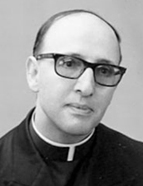

“Is history a science?" - was the question posed by the intellectuals of the time, to which Antunes had a sui generis answer: it is a science, but also an art. Its 'scientific' characteristics being objectivity, positivity (i.e., it focuses on facts), operability, rationality (i.e., legal and regular, restricting itself to a single historical law of progress), and approximateness (Obra Completa [Complete Works], t. 1, vol. 2, 2008, pp. 30-38). An approximation among the sciences was envisaged, in the wake of Goldman, with a notion of 'knowledge' that encompassed not only scientific knowledge but also technical, literary, philosophical, etc., whereby all the spectrums of knowledge were called upon. As such, the notion of history was woven conceptually in a philosophical dimension (e.g., history as 'time'), functionally with other areas of knowledge, such as mathematics (e.g., Georg Cantor's set theory, with Goldman's notions of 'structure' and 'genesis', applied to Hellenistic and Roman civilizations, in order to conceive of progress in history), and critically in relation to the prevailing historiography (e.g. ‘Darwinism’ revisionism in Arnold Toynbee’s theory of the rise and fall of civilisations).
The third stance is related to the European historiographical debate, permeated by Marxism, structuralism, and even positivism. It may be said that while Manuel Antunes criticised, he also integrated a part of each one of these strands. In the manner of Henri-Irenée Marrou, the most constant author in the texts of the História da Cultura Clássica coursebook, he considered history as "the consciousness" - a notion to be highlighted here - "of the intentional recovery of Man's past", thus underlining how "historical knowledge is, as such, prior to its consignment in writing”. Marrou's 'presentism' or 'relativism', alongside other references of the same sphere, such as R.J. Collingwood and Raymond Aron, are the currents of thought in which Antunes can best be integrated and classified. In their wake, he rejected positivism, but once again frequently to adopt the opposing position. For example, he took up Leopold Von Ranke's motto "what really happened" as the ideal of the "true historian", even if only as an aspiration. He also incorporated premisses of total history, as advanced by Fernand Braudel, and throughout the various versions of the text, increasingly adopted structuralist language, borrowed from Lévi-Strauss and Paul Ricoeur, until he came to conceive history as the analysis of political, social and anthropological structures, etc. (Idem, pp. 28-38, 93-107).
Manuel Antunes' legacy is still difficult to grasp. While, as mentioned by Eduardo Lourenço, he did not create a school among the Jesuits or the academics, he had followers and remained a steadfast cultural reference, especially for the students of the Faculdade de Letras.
